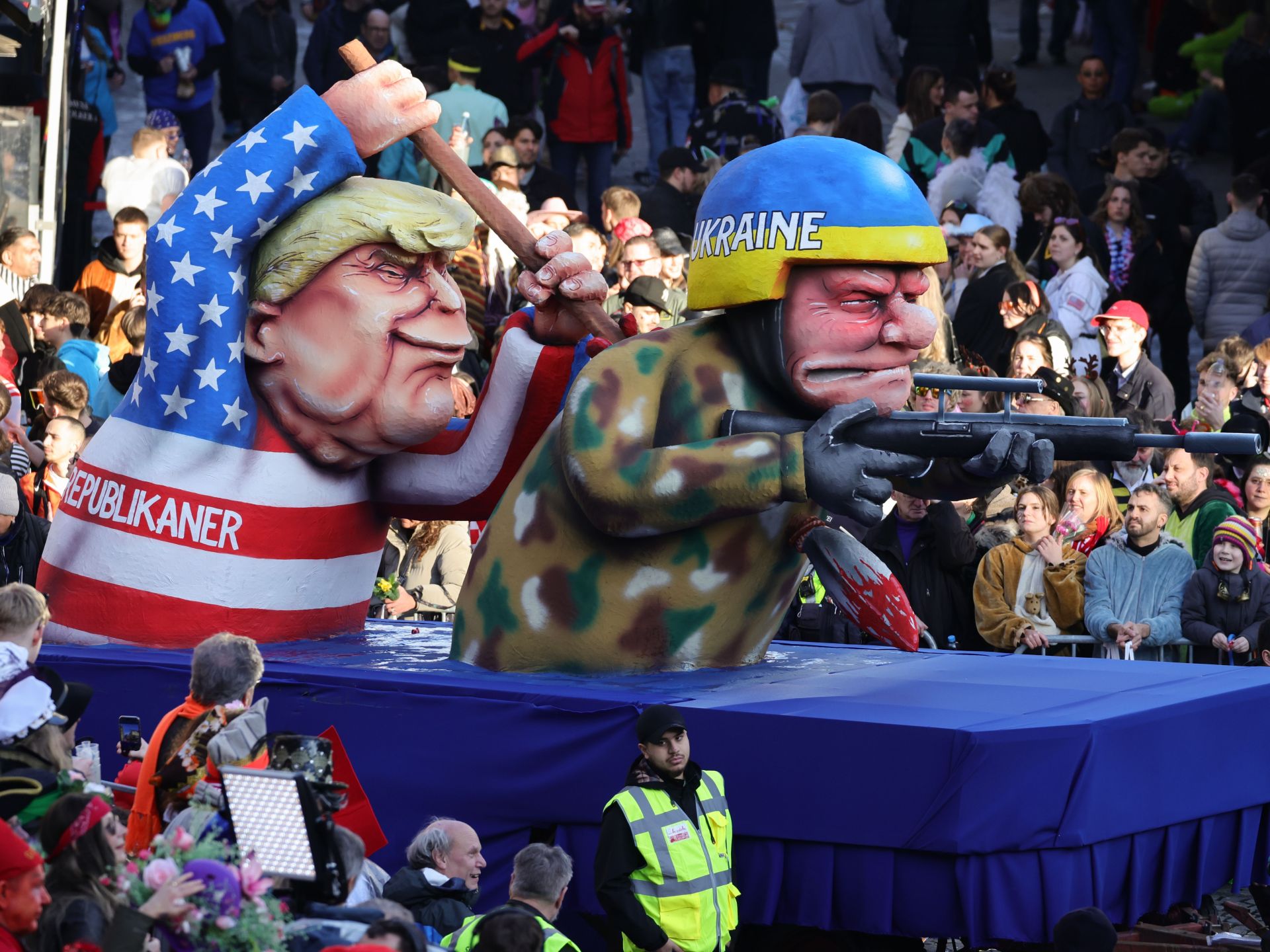A doll depicting Trump stabbing a Ukrainian soldier in the back at a festive carnival in Germany, which highlights European concerns about the possibility of Trump returning to the presidency of America (Getty)
Although the remaining time period for the next US presidential elections is about 9 months, the European eye is focused on calculating the smallest details of the election campaign in anticipation of the next resident of the White House, especially as the Europeans prepare to elect their next parliament.
After 3 months, 370 million Europeans will be called to the polls to renew their parliament, with the American election on the other side of the Atlantic approaching, and the concern troubling the major capitals in Europe is the possibility of the return of Republican Donald Trump as president of the United States.
The question currently preoccupying Europe is: How does the potential return of the American billionaire, who does not hide his disdain for the European Union and his priorities - which include supporting Ukraine in confronting the Russian war and combating climate change - affect the ballot boxes in the 27-nation European Union?
This main question is accompanied by other questions, including: Will this possibility enhance the likely rise of the extreme right?
Or, on the contrary, will it encourage voters to unite and vote for a more stable Europe?
Sebastien Millar of the Paris-based Jacques Delors Institute sums up the situation by saying: “For Europe, a new term for Trump in the White House represents a huge exclamation mark and a huge question mark at the same time.”
As for Susie Dennison, an analyst at the European Council on Foreign Relations, she confirms that the “Trump scenario” will have dire consequences for the European project for years, adding that many European priorities will become “much more difficult” to achieve.
But she regrets that this question will not necessarily be at the heart of the European Parliament election campaign discussions.
The result of the vote in the European Parliament elections, which will be held from the sixth to the ninth of next June to elect 720 deputies, will be subject to great scrutiny because the balance between the political spectrums determines the course of the race for the “senior positions,” that is, the presidency of the main institutions: the Parliament, the Commission, and the Council of the European Union.
Right, turn!
With less than 100 days to go until the European Parliament elections, opinion polls clearly point to the rise of the nationalist, Eurosceptic right, with a wide range of nuances and positions within it depending on the country.
The European People's Party (right) appears to be in a good position to maintain its position as a major political force, followed by the Socialists and Democrats.
But the third place remains more ambiguous;
The “Renewed Europe” bloc (centrists and liberals) that currently occupies this position may be overtaken by the Identity and Democracy group (extreme right).
The European Council on Foreign Relations expects that “anti-European populists” will rank first in 9 member states, including France, Hungary, Italy, and the Netherlands.
Rachel Rizzo of the European branch of the Atlantic Council believes that "there is a common language centered around the threat of migration, but it is difficult to determine the real impact of this at the European level."
The current poor economic situation is supposed to constitute fertile ground for anti-European integration forces.
Although consumers have begun to see inflation decline, no economic improvement is expected before the elections.
The European Central Bank recently lowered its growth forecast for the euro zone for 2024 to 0.6%, compared to 0.8% in its previous estimate.
Economy first
About 3 out of every 4 Europeans believe that their standard of living will decrease this year, and approximately one in two confirms that this level has actually decreased, according to a study conducted last December for the “Eurobarometer” (opinion polls conducted since 1974 on behalf of European institutions, including UNHCR).
Denison explains, "There are different factors that matter to voters in different European countries, but there is one basic factor everywhere, which is the economic situation."
It remains to be seen to what extent Trump, who sees - in his election rallies - his unpopularity in Europe as a sign of appreciation for him - will succeed in his attempt to influence the European discussion.
Trump's meeting in Florida last Friday with Hungarian Prime Minister Viktor Orban - who is described as a "troublemaker" at European summits and the only leader in the EU countries who maintains close relations with the Kremlin - indicates the former US president's intention to remain "the greatest destroyer of multilateralism in general." And the European Union in particular.
For his part, Millar asserts that the possibility of Trump's return "raises concern" within Europe, and this is in the interest of the ruling parties, explaining that "the more Trump's threat increases and the more Russia's aggression increases, the willingness to jump into the unknown decreases."
He continues, "On issues such as the Common Agricultural Policy, the far right finds what it seeks in Brussels bureaucracy and exaggerated standards, but when it comes to Europe facing the rest of the world, the matter is completely different."
Source: French

